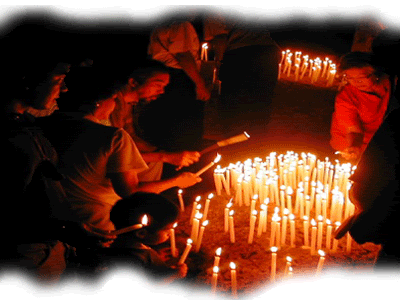
‘An insult to people’s right to know’ -- NUJP
INQUIRER.net Last updated 12:21pm (Mla time) 02/17/2007 MANILA, Philippines -- A journalists’ union slammed President Gloria Macapagal-Arroyo’s decision to withhold a human rights fact-finding body’s report from media, calling it an “insult to the people’s right to know” and proof of “this administration's policy of governance by exigency and spin.” The National Union of Journalists of the Philippines (NUJP), in a statement signed by its chairman Jose Torres Jr. and secretary general Rowena Carranza-Paraan, said it “cannot accept” Arroyo’s decision to release the report of the Melo Commission to the European Union and visiting United Nations special rapporteur on extrajudicial killings Philip Alston but not to media. The NUJP reminded the government that its “first duty is to its citizens. Withholding the Melo report from the media deprives the Filipino people of their basic right to information -- in this case, information that directly relates to the security of lives in this nation.” “Filipinos paid for the Melo Commission's work with their taxes. The least this government owes them is disclosure,” it said. The commission, chaired by retired Supreme Court justice Jose Melo, was created last August to investigate the extrajudicial killings human rights groups say have to date claimed more than 830 lives since 2001 after the administration came under increasing local and international pressure on its human rights record. Its report was submitted to Arroyo last month after which she invited international experts to conduct their own investigations into the killings. Arroyo’s decision was actually made Tuesday but disclosed only Friday by National Security Adviser Norberto Gonzales to whom it was directed, according to a report by the Philippine Daily Inquirer, parent company of INQUIRER.net. As late as Thursday, Malacañang insisted it was not releasing the report, which it described as “incomplete,” despite a request from Eneko Landaburu, director general for external relations of the European Commission (EC), which like the UN has also been invited to look into the killings, had earlier asked for a copy of the Melo Commission report. Melo disputed the Palace’s description of the report as incomplete, although he acknowledged that it was “not final” because of the continued killings, which have prompted Arroyo to ask the commission to continue its work. The NUJP noted that the decision to finally release the Melo report was made after its initial insistence that it be withheld, even from international bodies it had invited, “was met by outrage.” It also scored the administration for a “favorite tactic -- blaming the victims, in these case militant groups that have lost 800 members in murders the government refused to acknowledge for a long time,” as one of the reasons for describing the report as incomplete and, thus, not fit for release. “The government has no reason to keep the report secret,” the NUJP said. “It has stated repeatedly that most of the murder victims' kin and colleagues boycotted the Melo hearings. It must trust Filipinos to balance this fact with the findings of the commission.” It also noted that not all human rights and activist organizations snubbed the Melo Commission’s appeal for cooperation. These groups, it said, “complain of feeling betrayed by the government's refusal to release the Melo report.” The Melo Commission’s mandate included investigating the murders of journalists, which the NUJP places at 48 since Arroyo came to power in 2001, the highest death toll under any president, including the 14-year dictatorship of Ferdinand Marcos.
from ---> Click Me!
|
